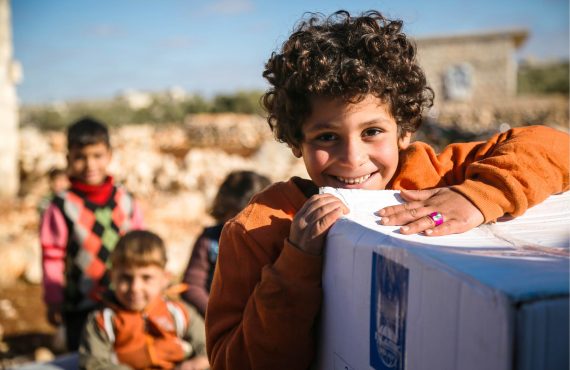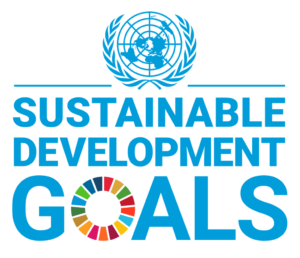
Islamic Relief celebrates its 34th anniversary last week on Wednesday 17 January.
The international humanitarian aid organisation, which has saved and transformed the lives of more than 110 million people worldwide, was founded in 1984 by Dr Hany El-Banna and fellow students from the University of Birmingham in response to the famine in Africa.
Within a year of its first 20p donation from Bassem, Dr El-Banna’s nine-year-old nephew, Islamic Relief began its first project – sponsoring a chicken farm in Sudan and set up its first field office in Khartoum. That same year, 1985, its founders hired a small office in Moseley, a suburb in south Birmingham, and raised a further £100,000 in response to the Sudan famine.
Over the next five years Islamic Relief grew rapidly and began to work in countries including Mozambique, Iran, Pakistan, Malawi, Iraq and Afghanistan, where it responded to emergencies and distributed clothes and food, offered health support and began the long-term project that is now its One-to-One Orphan Sponsorship programme.
Islamic Relief has provided aid at the heart of many disasters over the past 34 years in the UK and worldwide, from the tragic Grenfell Tower fire in London last summer to the ongoing conflicts in Syria and Yemen, the 2004 Asian tsunami, the Kashmir earthquake in 2005 and the 2010 Pakistan floods (see list below).
Our organisation now has over 100 offices in more than 40 countries. Last October Nepal became the most recent country to register Islamic Relief as an International Non-Governmental Organisation (INGO), and IR Nepal is in the process of establishing a country office.
Tufail Hussain, UK Deputy Director of Islamic Relief, said:
“For 34 years, Islamic Relief has striven to alleviate suffering, hunger, poverty and disease worldwide in line with our Islamic teachings on the value of every human life.
“We are a community charity that was started by the community. We are very reliant on community support to enable us to continue to provide disaster aid and emergency relief in a compassionate and dignified mannerto whoever needs it most, regardless of their race, religion or gender.
“However, we believe disaster relief is just the beginning. Being a beneficiary-led charity helps us think about what would really make the best impact on the people we serve.
“This is why we also carry out long-term sustainable development work to provide water, food, shelter, healthcare and education. Our Sustainable Livelihoods Programme helps people by supporting them to start their own business as a means of alleviating poverty and empowering individuals and communities.
“Our ultimate goal is to give people the confidence to take ownership in their own development and to secure their future without the need for continuing external assistance.
“We could not have achieved what we have done over the past 34 years without the ongoing support of our donors and we want to thank you for your ongoing financial support.”
ENDS
For more information, please contact James Tweed, Media Co-ordinator, on 020 7593 3219, or emailjames.tweed@islamic-relief.org.uk.
Notes for Editors
- Islamic Relief is an international aid and development charity that aims to alleviate the suffering of the world’s poorest people in more than 40 countries, mainly in Africa, Asia and the Middle East. As well as responding to disasters and emergencies, we promote sustainable economic and social development by working with local communities – regardless of race, religion or gender.
- Islamic Relief is one of the 13 UK charities that form the DEC (Disasters Emergency Committee) – seewww.islamic-relief.org.uk/AboutUs.aspx.
- In its 34-year history, Islamic Relief has helped 110m people worldwide.
- Islamic Relief is a signatory of the Red Cross Code of Conduct, an international standard on working with people affected by emergencies in a non-biased manner, and has acquired NGO status with the UN’s Economic and Social Council. We have signed a Framework Partnership with the European Commission Humanitarian Aid department, and a partnership agreement with UNHCR that reaffirms both organisations’ principles of giving aid without discrimination.
Islamic Relief highlights include:
Throughout: Islamic Relief responded to headline-hitting emergencies such as the 2004 Asian tsunami, the 2005 Kashmir earthquake, the 2010 Pakistan floods, the 2011 Somalia famine and the ongoing Syrian conflict
2017: Grenfell Tower disaster
2013: More than 30,000 orphans sponsored
2005: The first Muslim charity to join the UK’s Disaster Emergencies Committee
1999: Signed the Red Cross Code of Conduct, an international set of standards on working in disaster zones
1996: Began recycling and selling donated clothes in the UK
1994: The first Muslim NGO to receive UK Government funding (£180,000 for a training centre in Sudan)
1993: The Independent raised £37,000 for Islamic Relief’s Bosnia Appeal
1986: Began a number of major programmes that continue to this day, including orphan sponsorship and qurbani distribution, working in new countries such as Pakistan, Afghanistan and Malawi
1984: Islamic Relief is founded with its first 20p donation
Source: Islamic Relief UK




